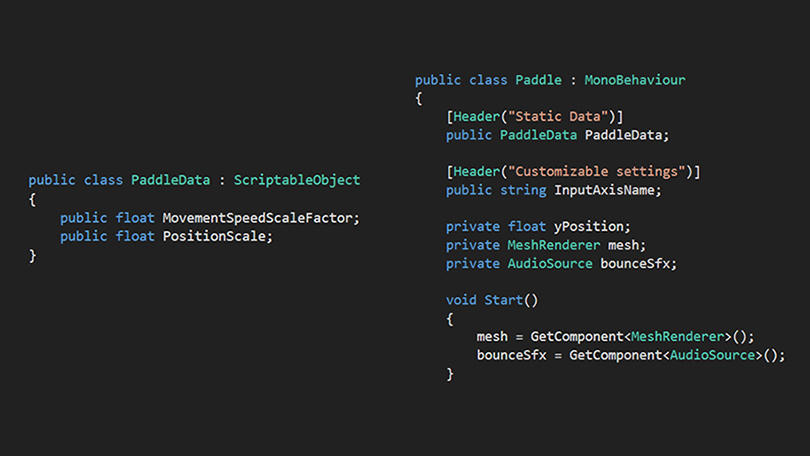February 24, 2024
Hello, friends! Are you ready for another round of our game dev journey? Last time, we explored game design. Now, we’re hitting the code-packed sequel: programming.
Imagine game programmers as the unsung heroes behind the scenes, turning coding sessions into the adventures you play. So, grab a snack, and let’s embark on this brief quest to review what a game programmer does.
The workshop
Before we dive into the skills needed as a programmer, let’s decode the role. Game programming is like the secret sauce of game development – it’s the code that breathes life into the games we play. It’s the art of taking abstract ideas and transforming them into something tangible and interactive.

Source: Unity
At the heart of a game programmer’s mission is the art of writing efficient code that is in line with detailed specifications (usually, these specifications are set by a group of developers that includes a programmer). Usually, it’s not a one-person show, but there are plenty of indie game developers out there who code every aspect of their game all on their own.
With that said, the same thing happens here as in the case of game designers; depending on the size of the team you work with, you will have more or less specialization. You might be an indie game developer working on your own game, or you could be part of a larger company where you specialize in programming AI for a certain type of enemies.
Foundational skills of a game programmer
To embark on the path of a game programmer, a set of foundational skills is essential. Here are key skills to develop for aspiring game programmers:
Programming languages:
C++ and C# stand as the most popular languages for game development (for example, Unity relies on C#, and even though Unreal Engine incorporates a blueprint system, it operates with C++ at its core). Being proficient in one or both of these languages will be a solid foundation for a successful game programming career.
Game engines:
Familiarize yourself with popular game engines like Unity or Unreal Engine. Knowledge of these engines is vital for implementing game features, optimizing performance, and troubleshooting issues.

Mathematics:
Game programming involves complex mathematical calculations and algorithms. You’ll need to study and be comfortable with these concepts. Vectors will be your daily bread.
Problem-solving:
Game programmers are problem solvers at their core. Cultivate the ability to analyze and troubleshoot issues within the code.
Collaboration and communication:
Effective communication with other programmers, designers, artists, and any other team member is crucial. Game programmers need to convey technical concepts in a way that anybody can understand.

Version Control:
Learn to use version control systems like Git or Unity Version Control to manage and track changes in the code, helping you maintain a stable and clean development environment (and the possibility to roll back if needed).
Continuous Learning:
The gaming industry evolves so rapidly… it’s exciting and exhausting all at the same time! New technologies and tools emerge regularly, so embrace a mindset of continuous learning to stay current.
Building your portfolio
Just like game designers, game programmers need a strong portfolio to showcase their skills and expertise. Your portfolio is a testament to your coding skills and problem-solving abilities. Include projects that demonstrate your proficiency in coding: build specific game mechanics, implement complex game systems, … choose a project that reflects the aspects of your skillset that you want to showcase.
Remember, your portfolio is not just a collection of code snippets; it’s a narrative of your journey. Let it tell the story of how you turned conceptual ideas into interactive experiences.